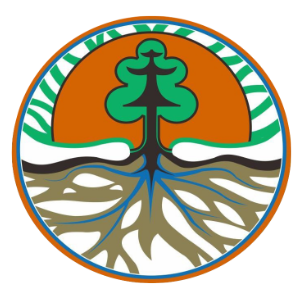
Exploitation of Indonesian peatlands with improper management has created vast areas of degraded peatlands. Degraded peatlands have become an important source of CO2 emissions from peat decomposition and land use change. On the other hand, appropriate utilization of peatlands for food production will be crucial in the future due to increasing food demand and inadequate arable land availability for agrarian development in mineral soils. Less damaging and more sustainable management practices that take into account optimum land allocation to ensure food security while reducing CO2 emissions need to be implemented in degraded peatlands. This paper discusses and highlights the effects of alternative land use options for degraded peatlands in the context of reducing CO2 emissions and improving food security. A 25-years simulation model shows that management of degraded peatlands areas in Central Kalimantan by reforestation, agroforestry and rice farming would reduce cumulative CO2 emissions by 13–21% compared to the business-as-usual scenario. Simultaneously, rice farming in degraded peatlands of the study area would annually contribute as much as 0.59 million tonnes to Central Kalimantan rice production starting from 2021.
- Authors: Surahman, A., Soni, P., Shivakoti, G.P.
- Author Affiliation: Asian Institute of Technology, Indonesian Agency for Agricultural Research and Development
- Subjects: peatlands, degraded land, land use, carbon, emissions, food security
- Publication type: Journal Article
- Source: Land Use Policy 72: 325-332
- Year: 2018
- DOI: https://doi.org/10.1016/j.landusepol.2017.12.050
















